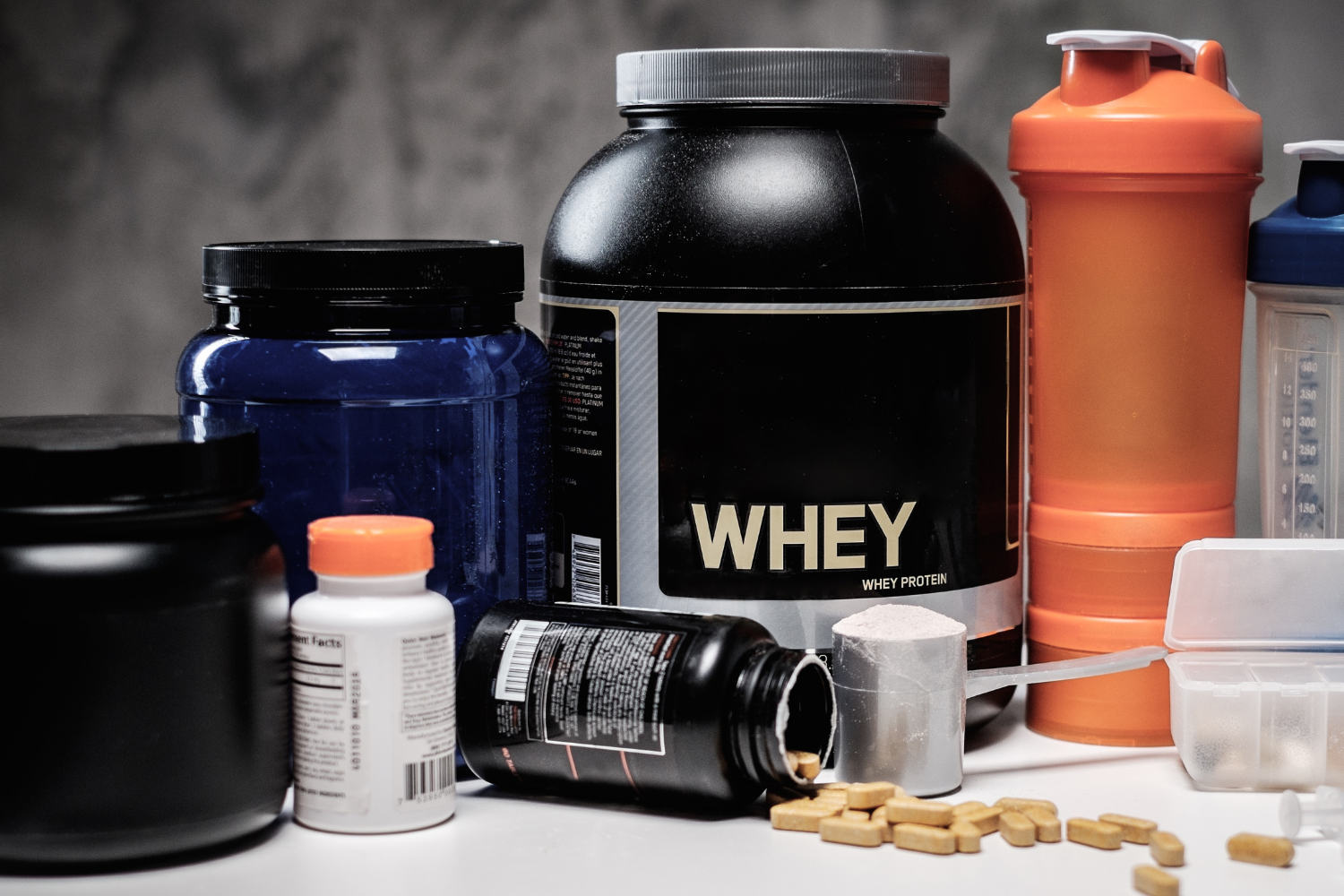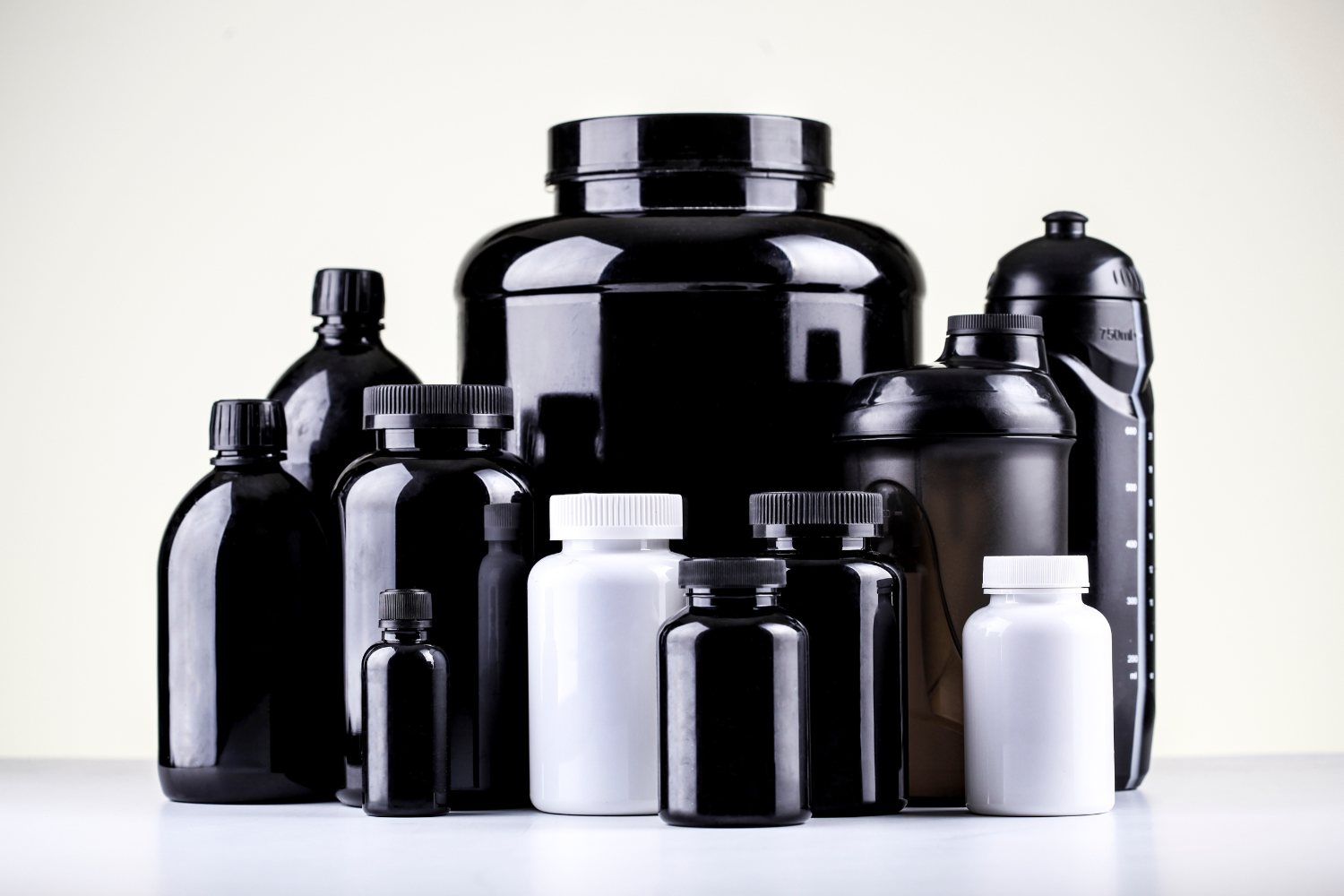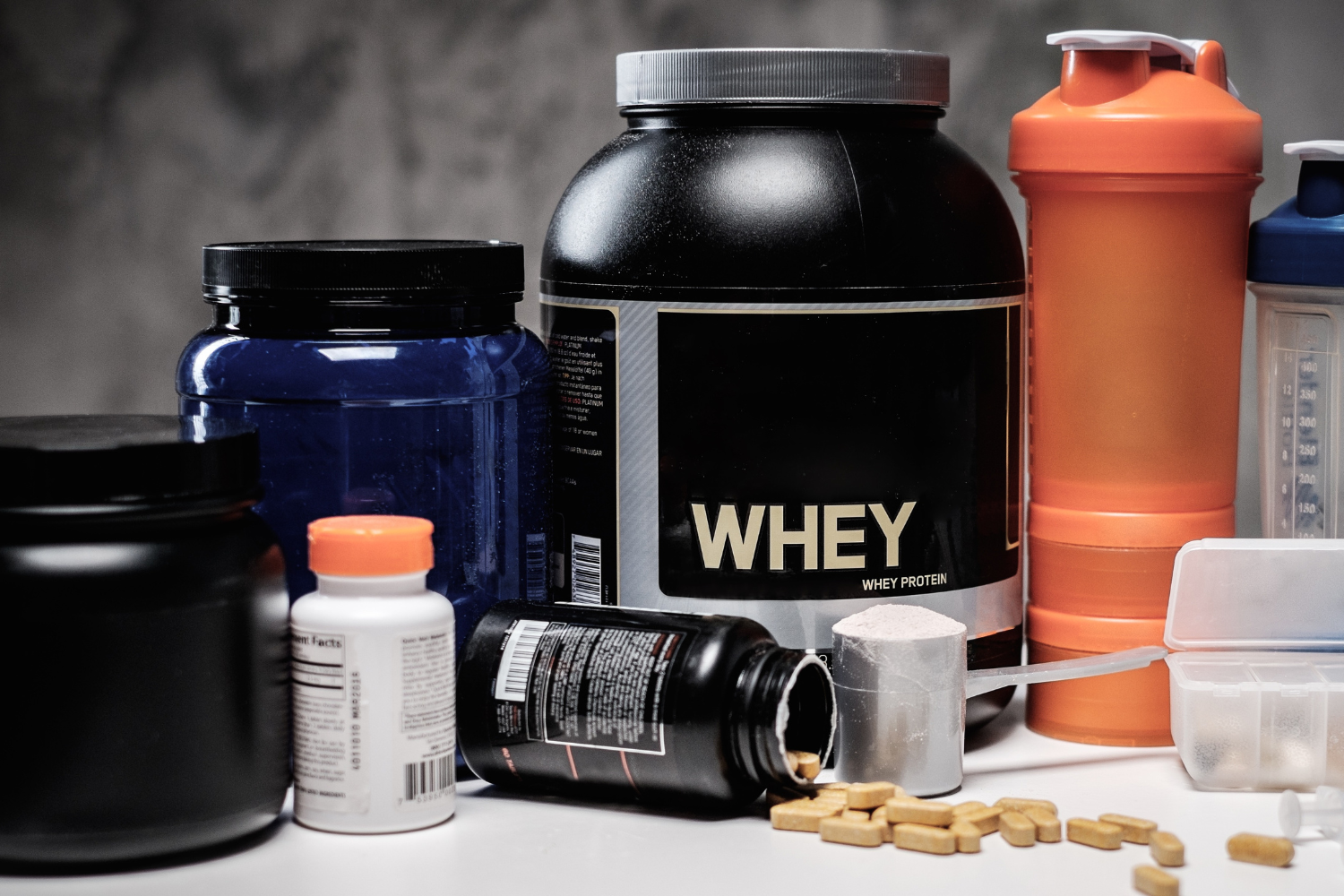The sports nutrition market is rapidly growing, driven by increasing demand for performance-enhancing supplements, protein powders, and recovery drinks. In recent years, consumer preferences have also shifted towards plant-based and sustainable options, creating opportunities for businesses offering eco-conscious products in the sports nutrition space.
With more fitness enthusiasts and athletes prioritizing a healthy lifestyle, the need for specialized, personalized sports nutrition products has never been higher. Consumers are looking for targeted solutions that address specific fitness goals such as muscle recovery, endurance, and weight management, opening opportunities for businesses offering tailored nutrition products. This creates a prime opportunity for entrepreneurs to start a sports nutrition business and establish their own brand in this constantly evolving space.
When you begin leveraging digital marketing channels and understanding market demand, you can position your business for long-term success. In 2024, the potential for growth in the sports nutrition industry is immense, making now the ideal time to turn your business concept into reality.
Step 1: Define Your Niche in the Sports Nutrition Market
When starting a sports nutrition business, defining a specific niche is crucial for standing out in a competitive market. Instead of offering everything, focus on a particular segment, such as muscle-building supplements, energy boosters, or post-workout recovery products.
When you narrow down your focus, you can better target your audience’s unique nutritional needs and provide specialized products that set your sports nutrition brand apart. A clear niche helps with marketing efforts and makes it easier to develop a strong brand identity and effective marketing strategy.

Examples of Popular Sports Nutrition Niches
Conducting market research will aid in determining the right niche for your sports nutrition business. If you conduct market research, you can easily attract new customers and meet their needs. Here are some popular niches to consider:
- Pre-Workout Supplements: Designed to boost energy and focus, pre-workout supplements are popular among fitness enthusiasts who need an extra push before their workouts.
- Protein Powders: A staple in sports nutrition, protein powders help with muscle recovery and growth, appealing to bodybuilders and those aiming for muscle gain.
- Endurance Products: These include electrolyte drinks and gels, perfect for athletes involved in long-distance running, cycling, or other endurance sports.
- Plant-Based Alternatives: With a growing demand for vegan and plant-based diets, products like plant-based protein powders are gaining traction among those seeking a health-inclined lifestyle.
Step 2: Understand the Regulatory Requirements
Navigating the regulatory landscape is essential when starting a sports nutrition business. Sports supplements must comply with regulations to ensure safety and trustworthiness, especially since they directly impact a customer’s health. Here’s how to make sure your products meet regulatory standards:
- Understand FDA Regulations: The FDA oversees dietary supplements, including sports nutrition products. Knowing the ingredients, claims, and safety guidelines is vital to avoid potential issues.
- Label Products Accurately: Ensure all labels include information like serving sizes, ingredients, and any required health warnings. This helps enhance credibility and keeps your products compliant.
- Conduct Third-Party Testing: Testing your products for contaminants or banned substances ensures they meet safety standards, particularly if targeting competitive athletes.
- Maintain Quality Control Standards: Implementing rigorous quality control during manufacturing helps prevent contamination and ensures that products meet the expected standards.
- Stay Updated with Changing Regulations: The sports nutrition space is constantly evolving, so regularly review any updates in regulations to ensure ongoing compliance.

Industry Certifications
Obtaining industry certifications is essential for building customer trust and meeting safety standards in the sports nutrition industry. Certifications like NSF Certified for Sport and Informed-Choice assure consumers, particularly athletes, that the products are free from banned substances and adhere to strict safety guidelines.
These certifications are crucial if your target market includes competitive athletes who need assurance that your products won’t cause them to fail a drug test. Displaying these certifications on your packaging and marketing materials can significantly enhance your brand’s credibility in the sports nutrition market.
Step 3: Develop High-Quality Sports Nutrition Products
Creating high-quality sports nutrition products is essential for building a reputable sports nutrition business. Working with experts ensures that your supplements are effective, safe, and backed by science. Here are some tips to guide the product development process:
- Collaborate with Nutritionists: Partnering with a sports nutritionist helps tailor products to the specific needs of athletes and fitness enthusiasts, providing them with targeted nutritional advice.
- Consult Sports Scientists: Sports scientists can offer insights into the latest research, ensuring that your supplements support optimal performance and recovery.
- Engage Product Development Experts: These professionals can assist with custom formulation, ensuring your products have the right blend of ingredients for maximum effectiveness.
- Conduct Focus Groups: Testing prototypes with fitness experts or targeted customers allows you to gather feedback and refine your products.
- Work with Reputable Manufacturers: Identify reliable suppliers and manufacturers to secure consistency in product quality and safety.

Source Premium Ingredients
Sourcing high-quality ingredients is a key step in creating effective sports nutrition products. Look for suppliers who provide clean protein sources, vitamins, and electrolytes with full transparency about ingredient origins and manufacturing practices.
Choosing reputable manufacturers ensures that your products contain only the best ingredients, which helps build customer trust. Transparency about what’s inside each product can enhance credibility, making your sports nutrition brand more appealing to health-conscious consumers.
Ensure Great Taste and Functionality
Achieving the right balance between taste and performance is crucial for sports nutrition products. Even the most effective supplement will struggle to retain customers if it doesn’t taste good. That’s why testing and refining your products is essential.
Conducting taste tests and tweaking formulations can ensure that your supplements provide performance-enhancing benefits and have flavors that customers enjoy. This focus on taste and functionality helps drive customer satisfaction and retention, contributing to the long-term success of your business.
Step 4: Create a Solid Business Plan
A solid business plan is the foundation of any successful sports nutrition business. It will help outline business models, estimate startup costs, and set clear financial projections. Start by identifying all potential expenses, including product development, marketing efforts, and overhead costs like office space or inventory storage.
Then, create a pricing strategy that balances affordability with profitability while considering demand. Forecasting revenue is essential to understanding your business’s growth potential and attracting potential investors or partners who can support your business growth.
Choose Your Sales Channels
Deciding where to sell your sports nutrition products is a major part of your plan. Consider the following pros and cons of different sales channels:
Pros:
- E-commerce Platforms: Low startup costs and the ability to reach a global audience.
- Own Website: Full control over branding and customer experience.
- Partnering with Gyms: Access to a target audience of fitness enthusiasts.
- Health Stores: Builds local credibility and trust within the community.
- Retail Distribution: Expands reach to customers through established stores.
Cons:
- E-commerce Platforms: High competition and fees for using certain platforms.
- Own Website: Requires investment in digital marketing and website maintenance.
- Partnering with Gyms: Limited to a local market, restricting broader reach.
- Health Stores: This may require negotiating shelf space and meeting retail pricing demands.
- Retail Distribution: Higher upfront costs for packaging, labeling, and distribution logistics.
Step 5: Build a Strong Brand Identity
Building a strong brand identity is essential for attracting athletes, fitness enthusiasts, and health-conscious consumers to your sports nutrition business. A well-defined identity sets your products apart and helps build trust. Focus on your brand values to create a message that resonates with your target market, emphasizing critical aspects like transparency, performance, or sustainability. Here are some tips to develop a compelling identity:
- Define Your Brand Values: Highlight what your sports nutrition brand stands for, such as commitment to quality or using natural ingredients.
- Create a Memorable Logo: Design a logo that reflects your brand’s energy and mission, making it recognizable to your target audience.
- Use Consistent Messaging: Ensure your messaging across all digital marketing channels, including social media platforms, stays consistent with your brand values.
- Engage with Your Community: Build relationships with fitness enthusiasts and influencers who align with your brand’s mission, creating valuable content that promotes your products.
- Showcase Success Stories: Share testimonials and success stories to build credibility and connect with potential customers who value results.

Design Professional Packaging
Professional packaging is a critical part of your brand identity. It protects your sports nutrition products and communicates their benefits to customers. The packaging should be sleek, functional, and visually appealing, making it stand out on shelves or in online marketplaces.
Including clear information about ingredients, benefits, and usage instructions ensures transparency and helps customers make informed decisions. Additionally, make sure your packaging meets regulatory requirements to avoid legal issues and reinforce your brand’s reputation for safety and quality.
Step 6: Set Up Manufacturing and Distribution
Selecting the right manufacturing partner is crucial for the success of sports nutrition businesses. A reliable partner ensures that your products are consistently produced with high quality, even as your business grows. Here are some tips for choosing a manufacturing partner:
- Assess Production Capacity: Make sure the manufacturer can scale production as your business grows to meet demand.
- Check for Certifications: Look for certifications that align with industry standards, like GMP (Good Manufacturing Practices), to ensure product safety and quality.
- Evaluate Quality Control Processes: Ensure the manufacturer has a robust quality control process to maintain product consistency and safety.
- Consider Custom Formulation Capabilities: If you want to create unique products, choose a manufacturer that can meet your custom formulation needs.
- Negotiate Favorable Terms: Work out clear contracts with pricing, timelines, and responsibilities to prevent misunderstandings and ensure smooth operations.

Manage Inventory and Fulfillment
Managing inventory and order fulfillment effectively is vital to running your sports nutrition business smoothly. Start by organizing your inventory, ensuring accurate stock levels to meet customer demands without overstocking. Inventory management software tracks products and streamlines the process.
When handling order fulfillment, focus on speed and accuracy—whether shipping directly from your warehouse or using a third-party logistics provider. Timely delivery is essential for customer satisfaction, especially when selling through online fitness platforms or retail partners. Clear processes for returns and exchanges can also enhance customer experience and boost retention.
Step 7: Build Your Online Presence and E-Commerce Platform
A strong online presence is essential for the success of your sports nutrition business in today’s digital age. Building a professional website with an easy-to-use e-commerce platform helps you reach fitness enthusiasts and sell your products directly. Here’s how to get started:
- Choose a Reliable E-Commerce Platform: Opt for a user-friendly platform like Shopify or WooCommerce that can handle your product listings and transactions.
- Design a User-Friendly Website: Create a website that’s easy to navigate, with a clean layout that makes it simple for customers to find products and information.
- Write Strong Product Descriptions: Include detailed descriptions highlighting each product’s benefits and how it fits into a wellness lifestyle.
- Implement Secure Checkout Options: Use secure payment gateways like PayPal or Stripe to ensure customers feel safe purchasing on your website.
- Optimize for Mobile Users: Make sure your website is mobile-friendly, as many users will shop on their phones or tablets.

Engage Customers with Content Marketing
Content marketing is a powerful tool for educating your target audience and building trust in your brand. Once you start sharing valuable content such as blog posts, workout guides, and nutrition tips related to sports performance, you can position your business as an expert in sports nutrition.
This content helps answer common questions, provides nutritional advice, and encourages customers to explore your products. A well-rounded content strategy drives traffic to your website and helps convert visitors into loyal customers.
Leverage Social Media Marketing
Social media platforms like Instagram, TikTok, and YouTube offer endless opportunities to connect with your target audience and promote your sports nutrition products. Showcase customer success stories to build credibility and inspire others to try your supplements.
Share behind-the-scenes videos of your product development process to highlight the quality of your ingredients. Partnering with fitness influencers who align with your brand’s values can provide authentic endorsements that resonate with their followers. Engaging video content and interactive posts can also boost engagement and attract new clients to your brand.
Step 8: Promote Your Brand and Products
Creating a buzz around your sports nutrition products is crucial for attracting customers and driving sales. Leverage social media ads for your target audience, such as athletes and fitness enthusiasts who are most likely to benefit from your supplements. Collaborate with influencers to reach their followers through engaging content like reviews or unboxing videos. Offering targeted promotions, like discount codes or limited-time offers, can create a sense of urgency and encourage immediate purchases.
Partnering with athletes, trainers, and fitness influencers can significantly boost your brand’s visibility in the sports nutrition space. These partnerships enhance credibility, showing that trusted figures in the fitness industry support your products. Athletes and trainers can provide valuable testimonials and feedback, which can be shared on your website and social media platforms to attract new customers. This approach builds trust and helps position your sports nutrition brand as a go-to source for quality supplements.

Step 9: Comply with Quality Assurance Standards
Ensuring your sports nutrition products are safe, effective, and consistent is crucial for building a successful brand. Setting up rigorous quality control systems helps maintain high standards throughout the production process. This includes testing raw materials, monitoring manufacturing processes, and regularly checking the final products for purity and consistency.
Implementing these measures will ensure that every batch of your sports nutrition products meets the safety and quality expectations of your customers, leading to greater customer satisfaction and trust in your brand.
Offer Transparent Product Testing
Sharing third-party lab test results with customers can greatly enhance your brand’s reputation in sports nutrition. Transparency in product testing builds trust and reassures customers that they’re getting safe and effective supplements. Here are some key benefits of offering transparent testing:
- Builds Trust with Customers: Customers are more likely to trust brands that openly share test results, showing a commitment to quality.
- Ensures Product Safety: Third-party testing verifies that your products are free from contaminants and meet industry standards.
- Demonstrates Ingredient Purity: Highlighting the purity of ingredients, like clean protein sources and vitamins, helps customers make informed choices.
- Meets Industry Standards: Displaying test results can show compliance with industry certifications, further enhancing credibility.
- Supports Marketing Efforts: Sharing test results on your website and marketing materials can be a powerful selling point, attracting new clients.
Step 10: Scale Your Business for Growth
Scaling your sports nutrition business involves expanding your product line and adapting to market trends. Introducing new products like energy bars, hydration supplements, or customized blends based on customer feedback can help keep your offerings fresh and exciting.
Regularly analyzing market trends can help you identify new opportunities to meet your target market’s evolving needs. This approach keeps current customers engaged and attracts new customers looking for innovative solutions. Diversifying your product line can significantly contribute to the growth of your new business and help you stay competitive in the sports nutrition space.
Enter New Markets
Expanding into new geographic areas or targeting specific sports markets can open up new opportunities for your sports nutrition business. To enter new markets, start by researching local regulations and understanding the unique needs of potential customers in those areas.
Tailor your marketing strategy to address the needs of specific groups, like endurance athletes who might seek electrolyte supplements, bodybuilders looking for muscle-building formulas, or team sports players who need recovery products. Engaging with local fitness centers and sports clubs can help you establish a presence in new regions. This strategic approach can increase brand recognition and help capture a broader audience.

Launch Your Sports Nutrition Business for Success in 2024
Starting a sports nutrition business requires careful planning, high-quality products, and strategic marketing. You can effectively position your business in the competitive sports nutrition market by defining your niche, developing science-backed supplements, and building a strong brand identity.
Establishing reliable manufacturing and distribution, creating an engaging online presence, and leveraging targeted promotions are the answers to attracting new customers and driving sales. For long-term success, focus on innovation, maintain rigorous quality standards, and adapt your marketing strategy to meet the needs of your target audience. You can achieve sustainable business growth in this dynamic industry with the right approach.
Frequently Asked Questions
How do I start a sports nutrition business from scratch?
Conduct market research, defining your niche, and creating a business plan that includes product development and a marketing strategy.
What are the most popular sports nutrition products?
Popular products include protein powders, pre-workout supplements, recovery drinks, and plant-based alternatives for fitness enthusiasts.
Do I need certifications for sports nutrition products?
Certifications like NSF Certified for Sport and Informed-Choice can enhance credibility by ensuring your products meet safety standards for athletes.
How can I promote my sports nutrition brand online?
Use social media platforms, content marketing, and influencer partnerships to reach your target market and drive engagement.
What should be included in a sports nutrition business plan?
To guide your business growth, your plan should cover startup costs, pricing strategies, sales channels, and financial projections.
References
- National Institutes of Health, Office of Dietary Supplements. (2023). Dietary supplements: What you need to know. NIH Office of Dietary Supplements. https://ods.od.nih.gov
- U.S. Department of Agriculture. (n.d.). FoodData Central. USDA FoodData Central. https://fdc.nal.usda.gov
- U.S. Food and Drug Administration. (2024). Current good manufacturing practices (CGMPs) for food and dietary supplements. FDA CGMPs. https://www.fda.gov
- U.S. Food and Drug Administration. (2024). Dietary supplements. FDA Dietary Supplements. https://www.fda.gov
- U.S. Small Business Administration. (2024). Write your business plan. Retrieved from https://www.sba.gov/business-guide/plan-your-business/write-your-business-plan





